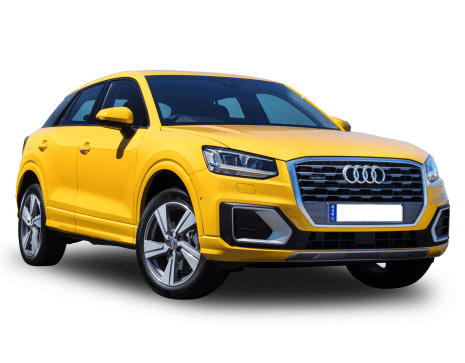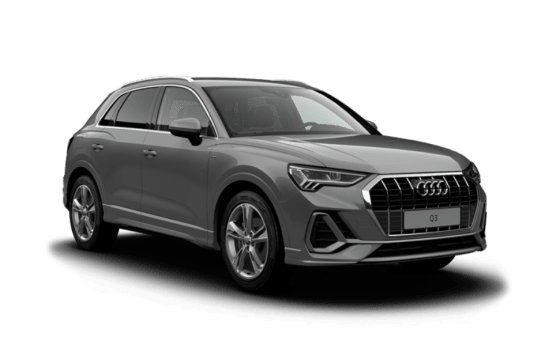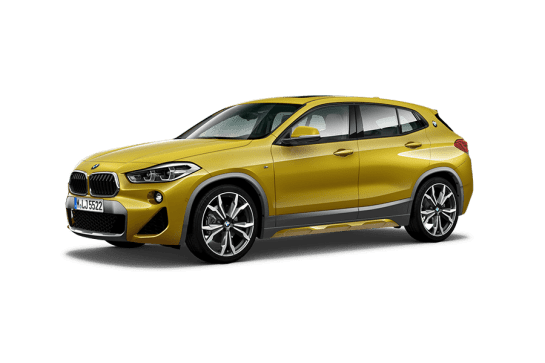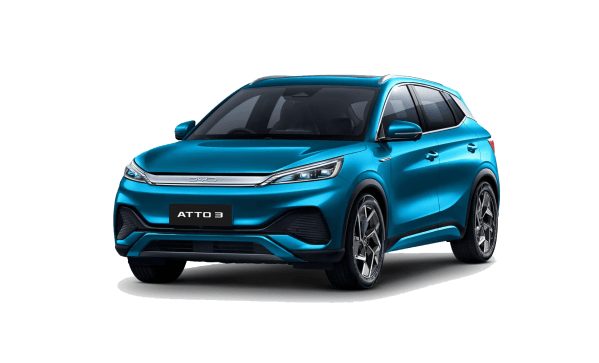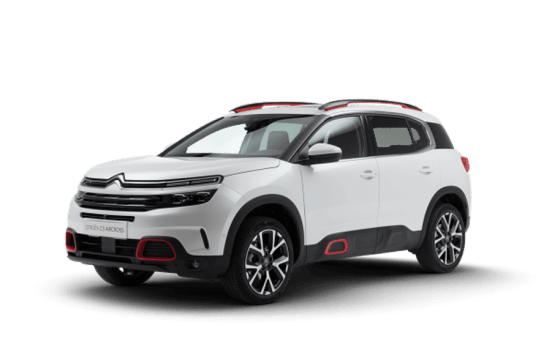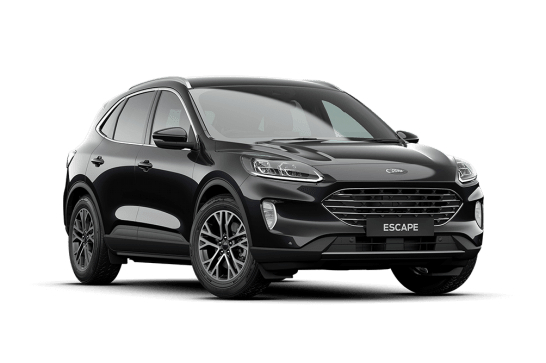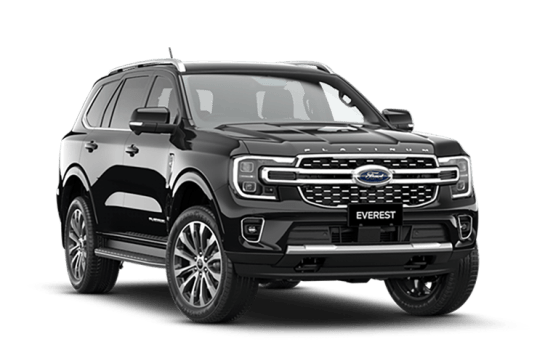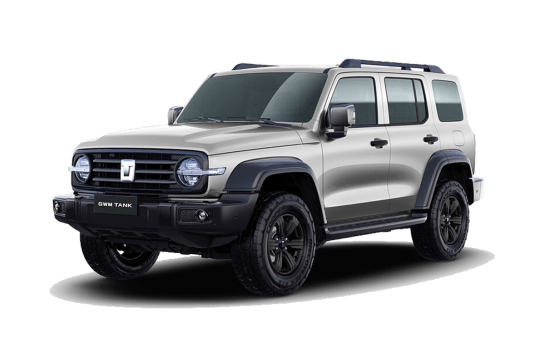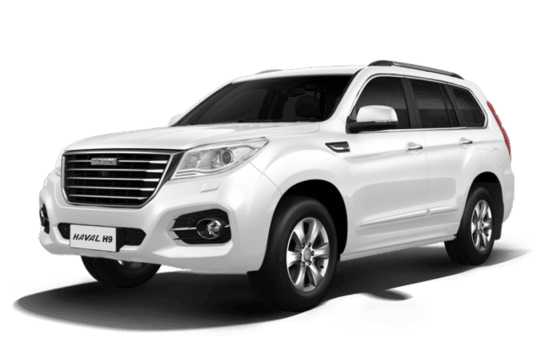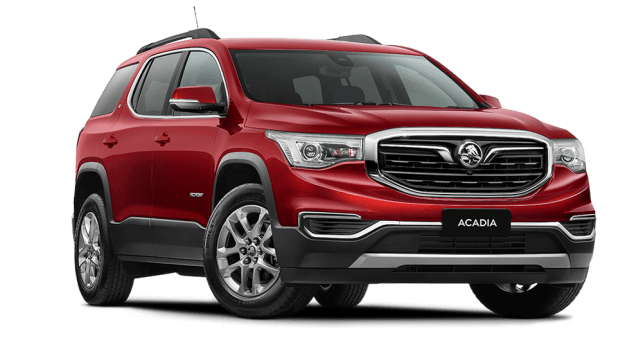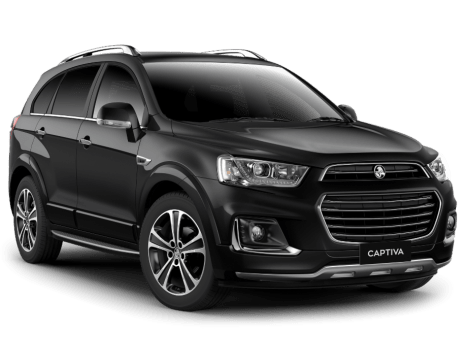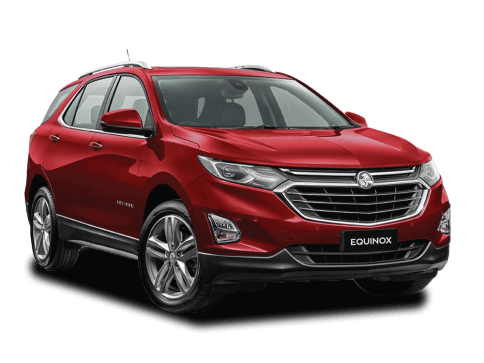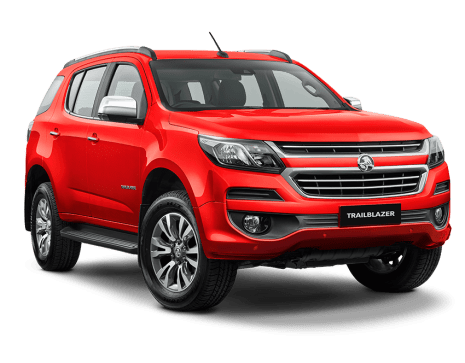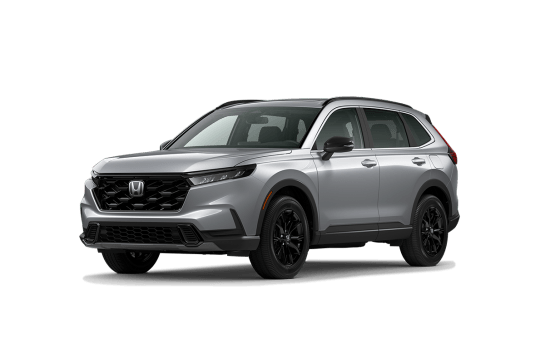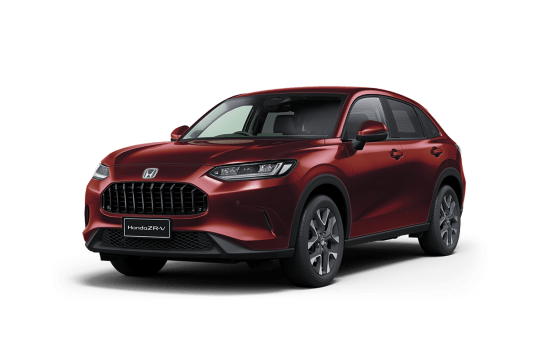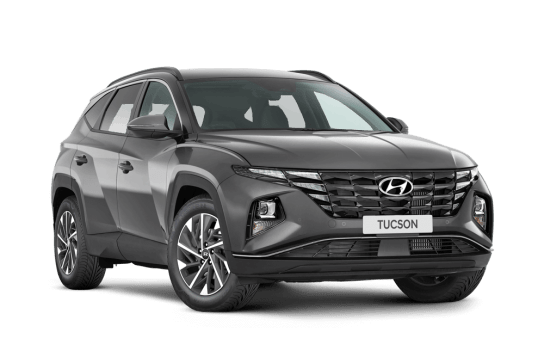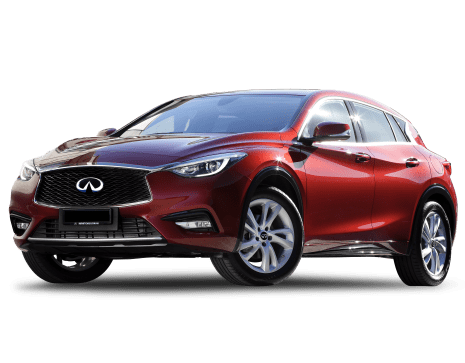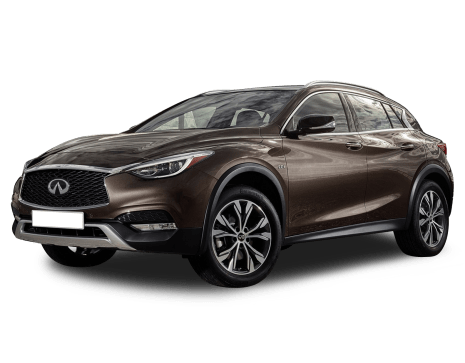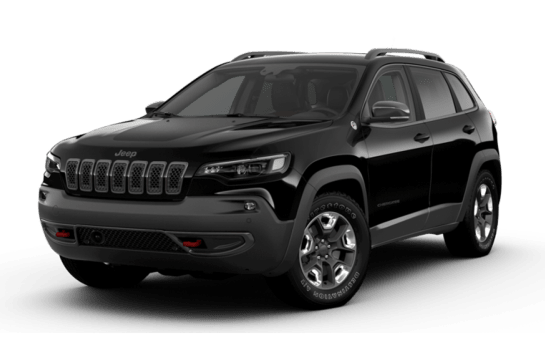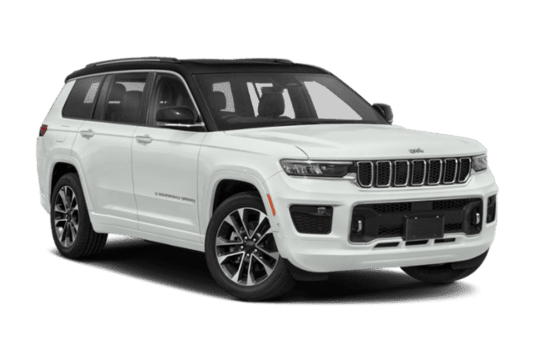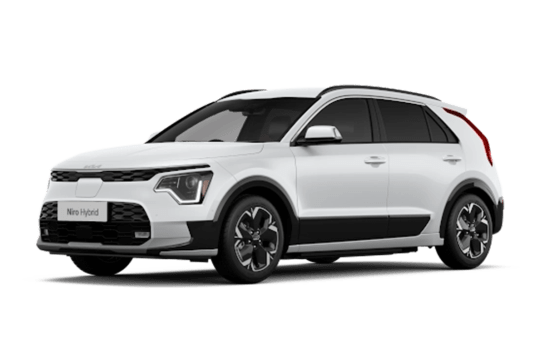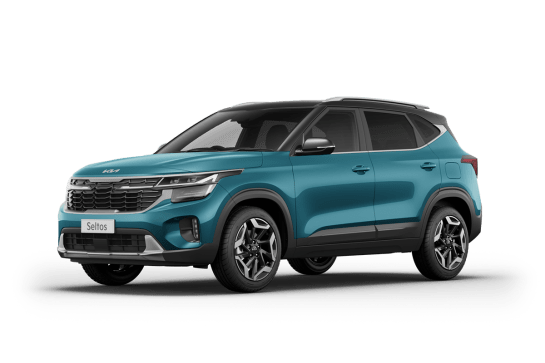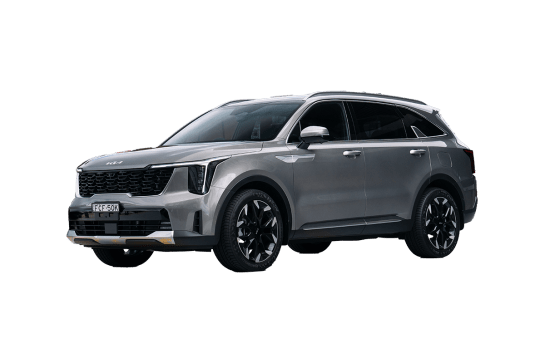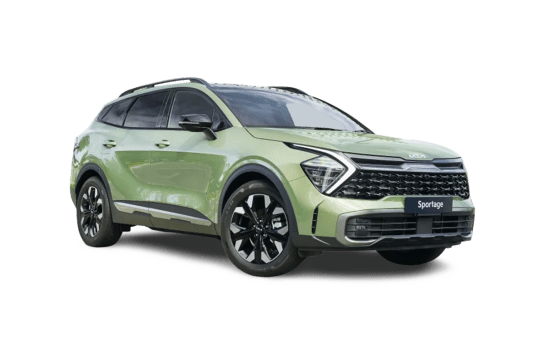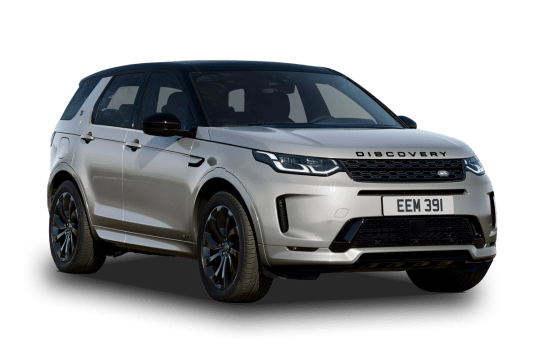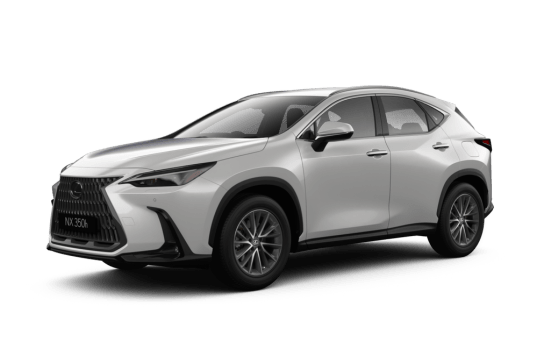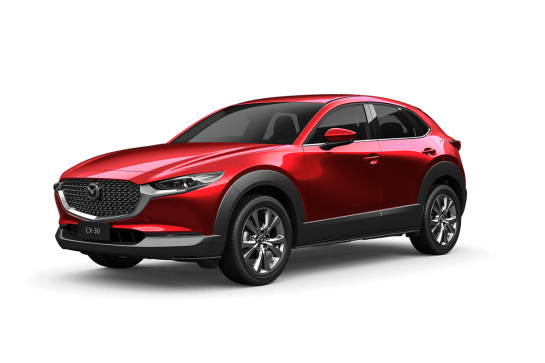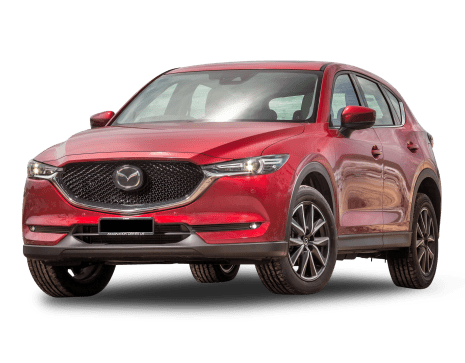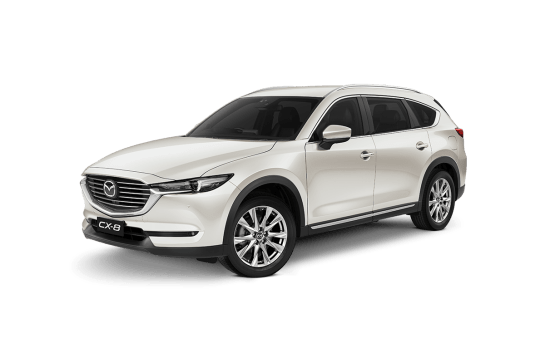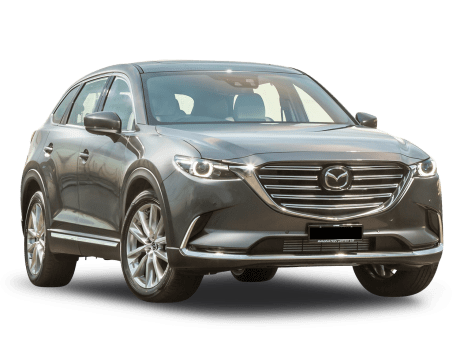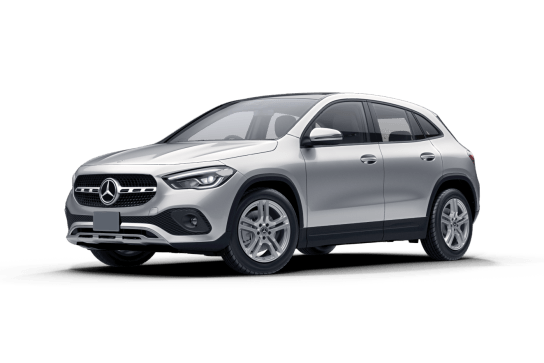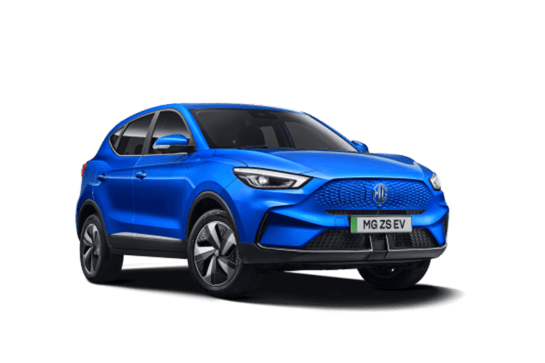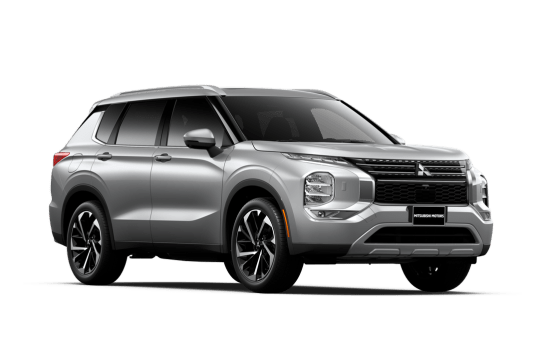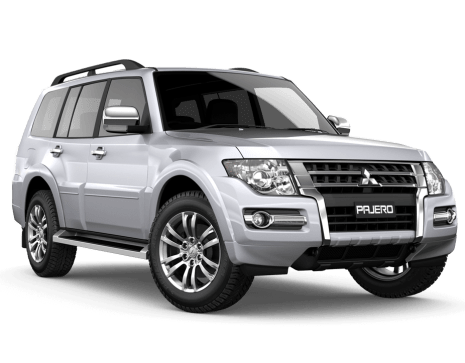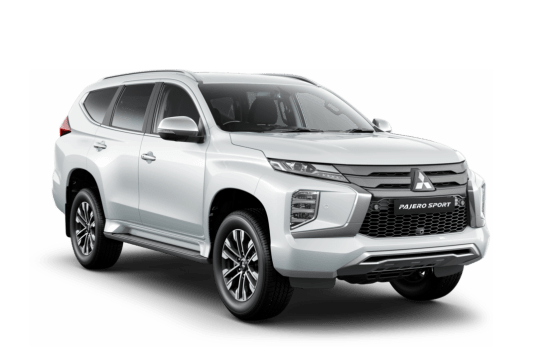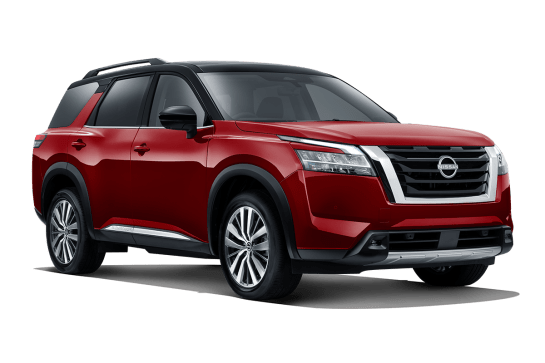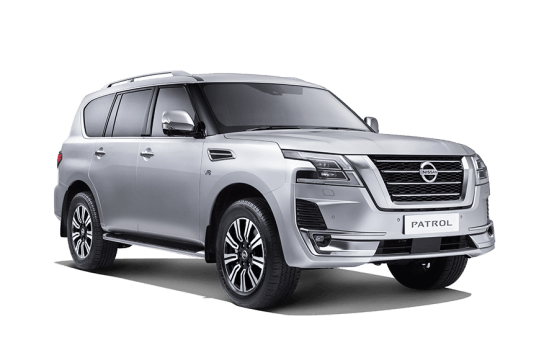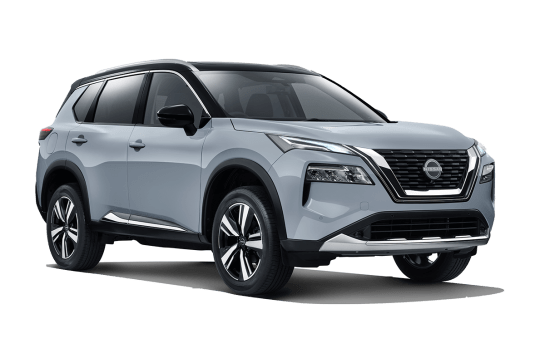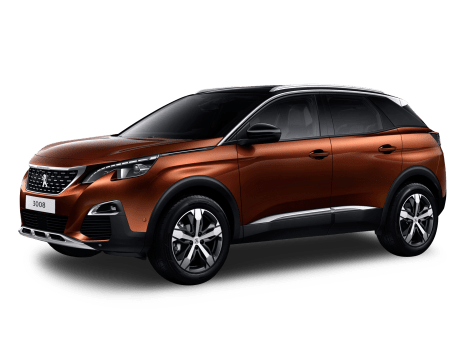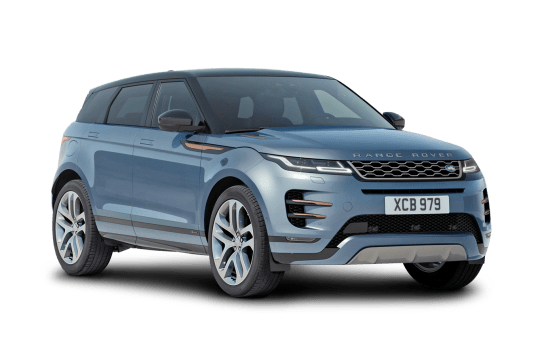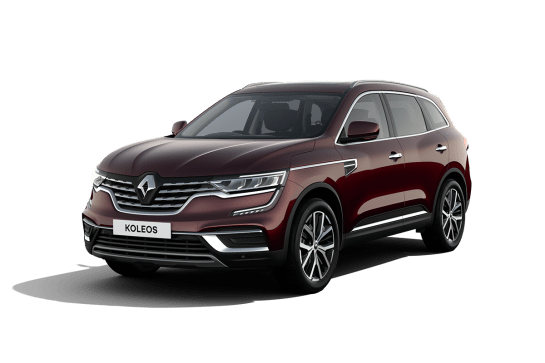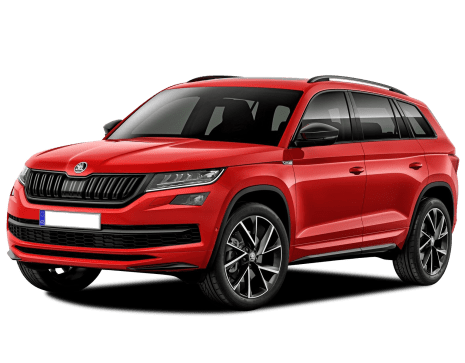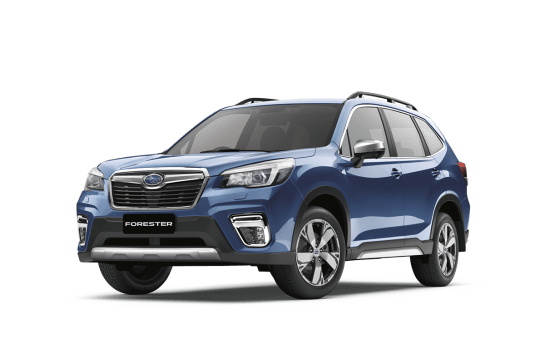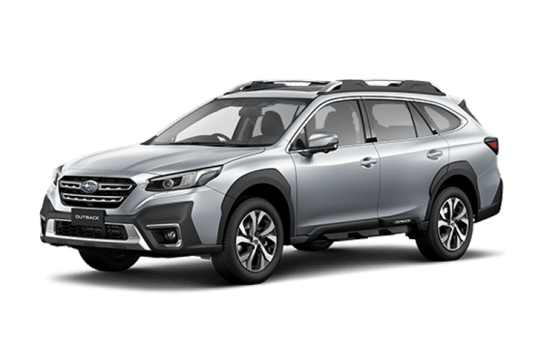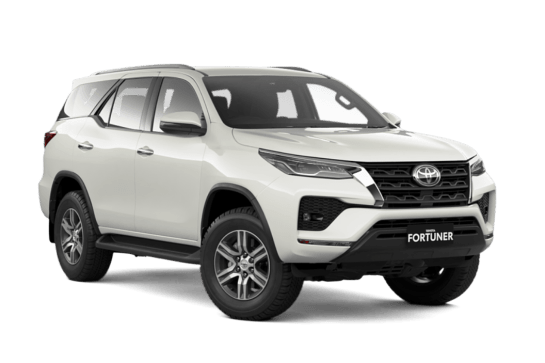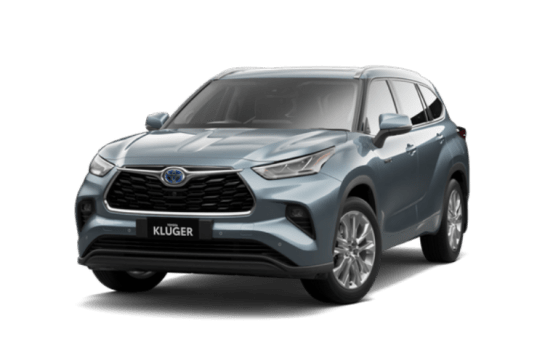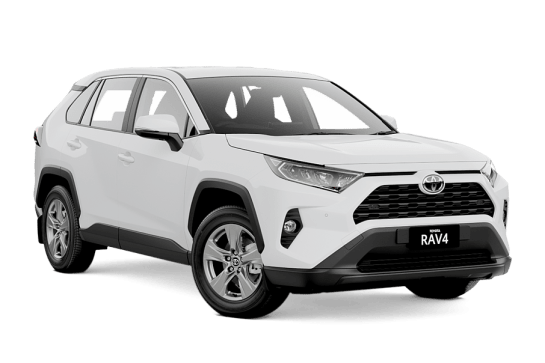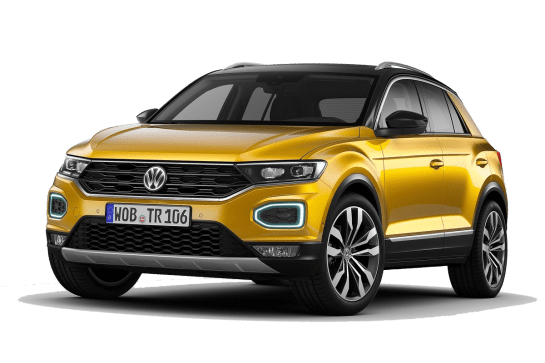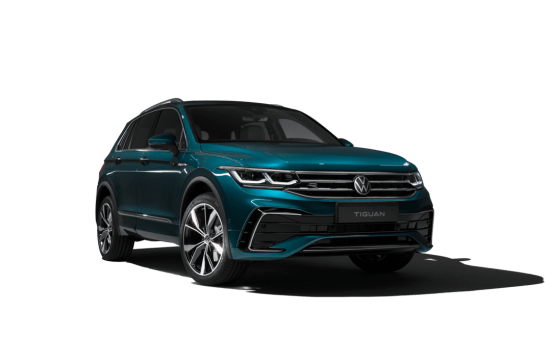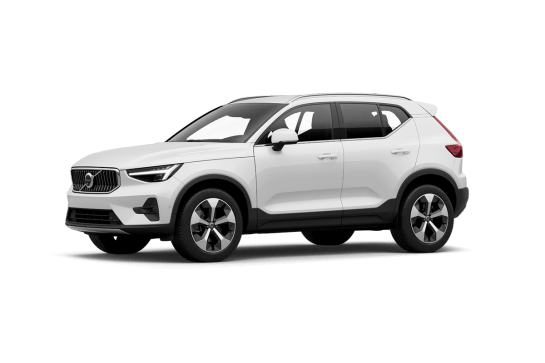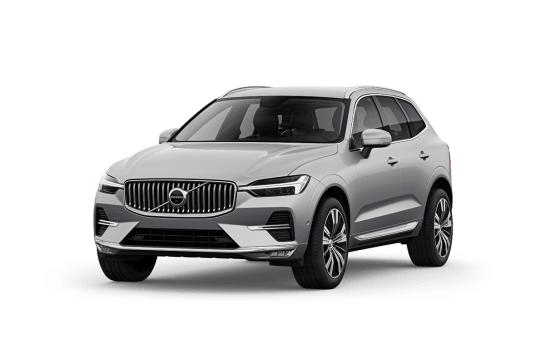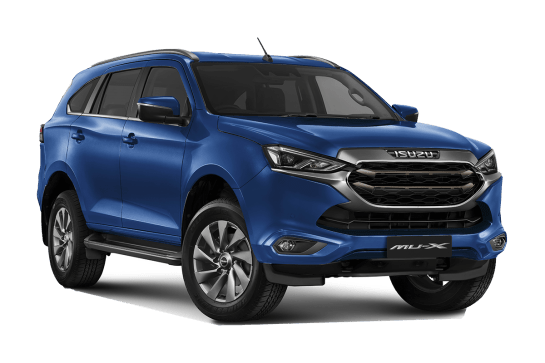
Isuzu MU-X VS Holden Acadia
Isuzu MU-X
Likes
- Packed with standard features
- Solid touring platform
- 4WD capability
Dislikes
- Firm suspension
- Some may not like the noise
- Need all-terrain tyres
Holden Acadia
Likes
- Truck-like exterior
- Third row spacious for class
- Good value
Dislikes
- Truck-like interior
- V6 needs to be pushed hard for results
- Handling not as good as CX-9
Summary
Isuzu MU-X
It’s an age-old debate: Which is the best vehicle for 4WDing, a wagon or a ute?
In order to draw closer to a definitive answer, we’ve pitted two of Isuzu’s well-equipped and very popular top-shelf 3.0-litre 4WDs – the seven-seat MU-X in LS-T spec and the five-seat D-Max X-Terrain – against each other to find out.
On paper, this seems like it should be a close contest.
Read more about
- 2025 Isuzu MU-X revealed: Major upgrades on the way for the best-selling Ford Everest and Toyota Prado rivalling off-road SUV
- 2024 Isuzu D-Max and MU-X allegedly suffering rapid front tyre wear due to steering geometry issues, with Mazda BT-50 'twin-under-the-skin' also called out
- Off-road rivals or also-rans? The Isuzu MU-X and GWM Tank 500 to lead the charge against the new Toyota LandCruiser Prado, but can they really take down the king?
The D-Max has recently been given a mid-life facelift, replete with revised exterior styling as well as useful upgrades to its multimedia system, while the MU-X has received a more modest model-year update.
While the MU-X now has an entry-level 1.9-litre turbo-diesel four-cylinder engine option, this test is focussed on the 3.0-litre version.
They are both well-equipped and have plenty to like, but which is the right one for you?
Read on.
| Safety rating | |
|---|---|
| Engine Type | 3.0L turbo |
| Fuel Type | Diesel |
| Fuel Efficiency | 8L/100km |
| Seating | 5 seats |
Holden Acadia
The Acadia is now here and finally Holden has a proper seven-seat SUV in its range. Yup, the now redundant Captiva can rust in peace because the Acadia is bigger, safer, more practical and high tech.
The thing is, there are some excellent seven-seat SUVs out there already – Mazda’s CX-9 is outstanding in terms of its cabin refinement and on-road dynamics, while Kia’s Sorento is great value and there’s the popular Toyota Kluger.
Made in Tennessee in the US of A, the Acadia has some serious competition. So, can the American with a Holden badge do anything the others can’t?
We attended the launch of the Holden Acadia and learned a lot. Let us tell you…
| Safety rating | |
|---|---|
| Engine Type | 3.6L |
| Fuel Type | Regular Unleaded Petrol |
| Fuel Efficiency | 8.9L/100km |
| Seating | 7 seats |
Verdict
Isuzu MU-X/10
The D-Max and the MU-X are two impressive 4WDs and both of them have plenty of appeal as daily drivers and touring platforms, but for slightly different reasons.
Both are evenly matched in terms of 4WD capability and have plenty to like in terms of driver-assist tech, standard features, and all-round driveability, but each has definite advantages and some minor trade-offs.
Which one is best for you? Well, that really depends on your lifestyle and your needs.
I like the seven-seat MU-X. It has plenty of appeal, but, for my money, I’d go for the D-Max. I use my vehicle for carrying loads – kayaks, surfboards, camping gear, and sometimes even building materials, furniture, rocks and rubbish – and a ute gives me extra versatility in terms of carrying onboard loads.
| Isuzu D-Max | Isuzu MU-X | |
| Price and features | 8 | 8 |
| Design | 7 | 7 |
| Practicality | 8 | 7 |
| Under the bonnet | 8 | 8 |
| Driving | 8 | 8 |
| Efficiency | 8 | 8 |
| Safety | 8 | 8 |
| Ownership | 8 | 8 |
| Score | 7.9 | 7.8 |
Holden Acadia7.6/10
The Acadia offers a tough-looking American take on the seven-seat SUV which won’t be appealing to everybody but will be loved by others. While the interior quality and design falls short of rivals such as the CX-9 and the handling isn’t as sharp as that SUV either, the ride is comfortable, the features list is extensive, the cabin space is outstanding and the level of advanced safety equipment is impressive.
The sweet spot for the range is really the base grade LT, but the best car is the LTZ-V.
What do you think of the Acadia's tough truck looks? Tell us what you think in the comments below.
Design
Isuzu MU-X
The D-Max and MU-X have never been particularly boring or indeed exciting in the looks department, which is a bonus in an age where inoffensive is sales gold.
But after its latest refresh treatment, the D-Max now has a bigger grille, new headlights, three-tier LED tail-lights, and redesigned wheels over the previous version.
Distinctive ‘X’ branding is included here and there – inside and out – and that adds a low-key class to the X-Terrain.
The MU-X is, well, the MU-X. Which is to say it doesn’t drum up any strong feelings – love or hate – either way.
For specs nerds, of which I’m one, the D-Max X-Terrain is 5310mm long (with a 3125mm wheelbase), 1880mm wide, 1810mm high and has a listed kerb weight of 2170kg. It has a wheel track of 1570mm and a 12.5m turning circle.
The MU-X LS-T is 4850mm long (with a 2855mm wheelbase), 1880mm wide, 1825mm high and has a listed kerb weight of 2180kg. It has a wheel track of 1570mm and an 11.4m turning circle.
| Isuzu D-Max | Isuzu MU-X | |
| Score | 7 | 7 |
Holden Acadia7/10
Made in Tennessee in the United States, the Acadia couldn’t look more American, with that blocky profile and truck-like face. Only the Toyota Kluger comes close to matching its macho design, while Mazda’s CX-9 and Kia’s Sorento have sleeker and more curvaceous styling.
Some people aren’t going to be fans of those bold, angular looks, but this is a large seven-seat SUV that’s obviously not trying to please everybody, and that will probably be part of the appeal to its fans – the Acadia is unapologetically tough looking.
The swapping of the GMC lettering (it's called GMC Acadia in North Amercia) for a Holden badge and subtler grille treatment give the Acadia a more refined and upmarket look.
However, refined isn’t a word you’d use to describe the interior, because while its truck-like looks make the Acadia appealing on the outside, the commercial styling in the cabin is disappointing.
Moulded plastics around the doors and hard plastics on the dash and centre console feel cheap and look tacky. The Acadia’s cabin lags behind the more stylish cockpit of the CX-9 with its excellent fit and finish.
Buying a higher grade in the Acadia range won’t really improve the cabin scenery much either. The LTZ-V is the top-of-the-line Acadia and while it comes with ventilated leather seats, the rest of the cabin looks almost identical in styling and materials as the base-grade LT.
The exterior differences between the grades isn’t that obvious either. While all grades come with rear privacy glass and LED tail-lights, the LTZ-V comes with square exhaust tips, aluminium roof rails and a dual-pane sunroof.
What are the Acadia’s dimensions? The Acadia is just under 5.0m long, while the CX-9 is 5.1m end-to-end. The Acadia is 2.1m wide (to the mirrors) and 1.8m tall.
The colour range is fairly limited with 'Glory Red', 'Mineral Black', 'Blue Steel', 'Summit White', 'Scorpion' (brown), 'Nitrate Silver', 'Dark Shadow' (a dark blue) and 'Abalone White' your only choices.
Practicality
Isuzu MU-X
Not a lot separates these two vehicles in terms of functionality or comfort because they share essentially the same interior with only a few differences.
The X-Terrain does, however, pip the LS-T overall with a slightly more premium look and feel to the cabin. Subtle touches such as red stitching in the cabin trim enhance the interior’s quiet charm.
Both cabins have a pleasant, familiar feel about them and are easy spaces in which to swiftly get comfortable and to quickly figure out where all controls are. And it’s easy to use those controls.
The X-Terrain has a black leather-accented trim, but there are plenty of durable plastic surfaces to cope with the messiness of real life.
The MU-X also has a leather-accented trim, but the same, practical plastic surfaces are present.
Charging options are numerous throughout the cabins of both vehicles – a mix of USB-A, USB-C and 12V up front, and USB-A for the second row.
Storage places (in both vehicles) include recesses for your everyday carry gear, a suitably deep centre console , as well as dual cupholders up front, cupholders in the rear fold-down centre armrest and bottle holders in the doors.
There are also cupholders either side of the third row in the MU-X for passengers riding back there.
There’s one seemingly minor but noticeable difference between the operation of the 9.0-inch multimedia touchscreen systems.
The MU-X has physical button options to activate some functions (including to switch on the audio system, to adjust volume, access sat nav etc), while those functions and others are activated/adjusted via on-screen buttons in the D-Max. No big deal, but you may prefer one of those approaches.
The load spaces on offer are obviously also a big point of difference in these vehicles.
The D-Max has a tub and it is shielded by a manually-operated roller-shutter cover that can be partially or fully opened or closed.
The tub is 1495mm long, 1530mm wide (1122mm between the wheel arches) and 490mm deep.
It is a double-walled tub, with an under-rail tub liner, two cargo tie-down points and it has tailgate assist.
The roller cover offers at least some degree of security from thieves, and protection from the elements (rain, mud, snow etc), but the drum (in which the cover is stored when it is rolled open) does impact the packability of the load space.
Another option for D-Max owners is to get an Isuzu or aftermarket canopy, although that impacts the versatility of the load space because once it’s an enclosed area it makes it a bit more difficult to carry long and/or large loads in the tub.
The MU-X has the advantage here in terms of security and protection from the elements because its load space is fully enclosed from the factory.
The MU-X’s cargo area is 311 litres with all three rows in use; 1119 litres with the third row flat; and it’s 2138 litres with the second and third rows folded.
The rear cargo area has a cargo cover (so any potential crooks who look through your windows are unable to see your valuables), tie-down points and a 12V power outlet. There is a storage space under the rear cargo area floor and a tool storage space inside the driver’s side rear cargo wall.
| Isuzu D-Max | Isuzu MU-X | |
| Score | 8 | 8 |
Holden Acadia9/10
All Acadias are seven-seaters, but not all seven-seater SUVs in the world really fit seven adults. I can’t sit comfortably in the third row of the CX-9 – the sloping roof line destroys headroom back there and my legs are wedged into the seat back.
Here’s the big news: even at 191cm tall I can sit in the Acadia’s second row (behind my driving position), and then behind that in the third row all without my head touching the roof or knees hitting the back of the seat in front. That is exceptional.
The dual sunroof in the LTZ-V limits headroom, so think about the LTZ if you’re going to be carrying tall freaks like me all the time, but it’ll be plenty spacious for kids.
Climbing into that third row is easier than the CX-9 thanks to the Acadia’s tall roofline, although being American-made the larger folding section of the second row is on our kerb side (not the case with CX-9).
Still, the second row slid far enough forward to make getting into the back easy enough for me.
Cabin storage and utilities are excellent. Third-row passengers have two cupholders, a hidey hole for loose items, air vents and a USB port. Second-row dwellers have two USB ports, a large storage drawer, two cupholders in the fold down armrest, climate control dials and air vents, plus decent-sized door pockets.
Up front, the centre console bin is large and deep, the storage compartment in front of the shifter fits my iPhone 8 (in the LTZ and above there’s wireless charging in there), you’ll also find two large cupholders, a large glove box and door pockets. There are two 12-volt power outlets – one in the cockpit and the other in the cargo area.
Boot capacity with the third row in place is 292 litres, but that is measured to the roof (Mazda measures to the cargo cover). With the third row folded flat the luggage space of the Acadia is 1042 litres, and with the second and third rows folded you have 2102 litres of cargo room.
Price and features
Isuzu MU-X
Both of these vehicles – the 2024 D-Max X-Terrain dual-cab 4x4 and the 2024 MU-X LS-T 4x4 – have a drive-away price of $67,990, excluding on-road costs. However, each has an extensive list of accessories fitted.
This X-Terrain has an electronic brake controller ($896.05), premium paint ($695), a 12-pin plug ($393.25), rubber mats ($215.56) and a tow bar tongue ($215.05).
Accessories fitted at time of sale attract an accessory stamp duty of $86. With those extras onboard this D-Max has a price as tested of $70,490.91.
This MU-X has a tow bar kit ($1182.25), electronic brake controller ($896.05), premium paint ($695), a 12-pin plug ($393.25) and rubber mats ($249.65). With those accessories onboard and accessory stamp duty of $136.06 this MU-X has a price as tested of $71,542.26.
Standard features onboard both vehicles include a 9.0-inch multimedia touchscreen system with sat-nav, Android Auto and wireless Apple CarPlay, an eight-speaker sound system, eight-way power-adjustable driver’s seat, remote engine start, smart entry and start and 20-inch machined-alloy wheels on 265/60R20 Bridgestone 684II HT tyres. This D-Max has 18-inch tyres.
Exterior paint choices on the X-Terrain include 'Basalt Black Mica', 'Mercury Silver Metallic', 'Mineral White', 'Neptune Blue', 'Obsidian Grey Mica', 'Magnetic Red Mica', 'Granite Grey Mica', 'Moonstone White Pearl' and 'Sunstone Orange Mica'.
Exterior paint jobs on the MU-X LS-T include 'Galaxy Blue Mica', 'Cobalt Blue Mica', 'Magnetic Red Mica', Basalt Black Mica, Obsidian Grey Mica, Mercury Silver Metallic, Moonstone White Pearl and Mineral White.
| Isuzu D-Max | Isuzu MU-X | |
| Score | 8 | 7 |
Holden Acadia8/10
The Acadia range has three grades to it – the entry level LT which lists for $43,990, then the mid-spec LTZ for $53,490 and at the top of the range is the LTZ-V for $63,490. These are the prices for the front-wheel drive Acadias and you can have them in all-wheel drive, but it’ll be an extra $4000 on top.
The LT comes with a mountain of standard features, including an 8.0-inch touchscreen with sat nav, reversing camera, Apple CarPlay and Android Auto, three-zone climate control, rear parking sensors, proximity key, rear privacy glass and 18-inch alloy wheels. There’s also an impressive array of advanced safety equipment which I’ll take you though further down this review.
The LTZ gets all the LT’s features and adds leather seats, power adjustable and heated front seats, rain sensing wipers, wireless charging for phones, power tailgate, front parking sensors, and this will make some people very happy – automatic parking.
The LTZ-V comes with all the LTZ’s features and more including ventilated seats, 20-inch wheels, dual-pane sun roof, 8.0-inch virtual instrument cluster, eight-speaker Bose stereo with amplifier and subwoofer, and adaptive suspension.
That’s great value and it’s on the same level as the CX-9, although the Mazda comes with a head-up display on all grades. You can’t get one even on the top-of-the-range Acadia.
Under the bonnet
Isuzu MU-X
Both of these vehicles have a 3.0-litre, four-cylinder, turbo-diesel engine, producing 140kW at 3600rpm and 450Nm from 1600 to 2600rpm, matched to a six-speed auto.
This engine and auto combination forms part of a proven powertrain and while these two vehicles may be a bit sluggish in acceleration terms and may not be the most dynamic vehicles to drive, the D-Max and the MU-X have a real tractability about them that negates any other flaws.
They both have part-time 4WD, with high- and low-range. Driver-assist tech such as 'Rough Terrain' mode has been tweaked with the aim of making Isuzu 4WDs perform off-road even better than before.
| Isuzu D-Max | Isuzu MU-X | |
| Score | 8 | 8 |
Holden Acadia7/10
Now the engine – it’s a V6 petrol that makes stacks of power at 231kW and plenty of torque at 367Nm. The problem here is the maximum torque comes in at 5000 rpm. Torque is the force that’s sent from the engine and turns the wheels and it’s preferable to have all the torque come in low in the rev range.
See, most of the time I drove the Acadia the revs never got above 3000rpm. If I wanted to overtake I needed to hammer it. The CX-9 makes 420Nm of torque at 2000rpm – it’s under your right foot almost always. It’s preferable to have low-end torque for towing, too.
Talking of that, the braked towing capacity of the Acadia is 2000kg.
The transmission is a nine-speed automatic – a torque converter. It’s an excellent transmission, that shifts intuitively and smoothly. The Acadia offers a choice of front-wheel drive or the optional all-wheel drive.
Efficiency
Isuzu MU-X
Official fuel consumption for this D-Max is 8.0L/100km on a combined cycle which rises to 8.3L/100km for this MU-X is.
Actual fuel consumption on this test, from pump to pump, was 9.8L/100km for the D-Max and 10.2L/100km for the MU-X.
The D-Max has a 76-litre fuel tank. So, going by those fuel consumption figures, you should be able to get a driving range of about 775km from a full tank.
The MU-X has an 80-litre fuel tank and using our real-world consumption figure you should be able to get a driving range of about 784km.
| Isuzu D-Max | Isuzu MU-X | |
| Score | 8 | 8 |
Holden Acadia6/10
It’s a V6 so it’s going to be thirsty right? Yes, but this engine can deactivate two cylinders to run on four when not under load. That said even on the country roads that the Acadia launch was held on, the mileage the trip computer was reporting ranged from about 10.0L-11.0/100km for both the all-wheel drive and front-wheel drive Acadias.
You can bet that will head higher in the traffic of the suburbs and city. Holden says that after a combination of urban and open roads the FWD Acadia should use 8.9L/100km and the all-wheel drive will need 9.3L/100km. Those are pretty optimistic numbers and the real-world fuel economy will certainly be higher.
Driving
Isuzu MU-X
These two are evenly matched in terms of drivability and off-road capability.
We spent the lion’s share of our test time off-road but these two vehicles are fine on sealed surfaces; easy to drive (albeit a bit sluggish) and suitably refined (albeit a bit noisy).
Both can feel a tad agricultural to steer about at times but, as I said before, that’s okay and part of the Isuzu charm.
But beyond satisfying any daily-driving requirements these vehicles are impressive 4WDs.
From the engine-and-auto pairing, through to driver-assist tech, physical dimensions and simply general all-round suitability, these two are naturals in most off-road environments.
The D-Max and MU-X have plenty of low- and mid-range torque but both also have quite firm suspension over gravel and dirt tracks at speed, and are rather noisy. Although, if you’ve spent any time in a diesel 4WD the tractable engine’s subdued clatter won’t bother you at all.
But there are some differences between the two in terms of their overall performance off-road.
The D-Max has had, through recent development phases, a recalibrated off-road traction control system that's been improved to be more precise and effective through challenging terrain.
But the D-Max now benefits from the introduction of what Isuzu calls Rough Terrain mode, which operates like a boosted off-road traction control, claimed to kick into action at a point of less wheel-spin than a standard off-road traction control system, transferring torque to the wheels that have the most traction, sooner rather than later. Rough Terrain mode debuted in the MU-X in 2021.
This is not a magic pill by itself, but it’s another handy addition to the D-Max’s already-substantial off-road toolbox that also includes a rear diff-lock.
The D-Max has a greater listed ground clearance (240mm) than the MU-X (235mm) but both vehicles have the same wading depth (800mm).
The D-Max is somewhat hamstrung by its longer wheelbase (3125mm compared to the MU-X’s 2855mm wheelbase) and it has shallower approach and departure angles (27.3 and 19.0, respectively) than the MU-X (29.2 and 26.4), but its ramp-over angle is greater (not by much) at 23.8 degrees vs 23.1.
The MU-X is more nimble than the D-Max on technically challenging 4WD tracks, with its shorter wheelbase and shorter overall body length (4850mm vs the D-Max’s 5310mm). Its turning circle is 11.4m compared to the D-Max’s 12.5m.
Those factors don’t take anything away from the D-Max’s efficacy off-road, it simply means this ute needs to be driven with more careful consideration than the wagon.
Often, the size and type of standard tyres on a top-shelf 4WD straight out of a showroom are not ideal for 4WDing and should be replaced if off-roading is on the new owner’s agenda anytime soon.
However, the tyres on this D-Max and MU-X – 265/60R18 Bridgestone Dueler 684II HT (Highway-Terrain) tyres on the D-Max and 265/50R20 Bridgestone Dueler HTs on the MU-X – are okay, but not really up to scratch if tough 4WDing is what you’ll be doing.
The D-Max’s 18-inch wheel-and-tyre package is at least a more 4WDing-friendly sizing than the MU-X’s 20-inch combo.
Replace the HT tyres with a decent set of all-terrain tyres and maybe consider getting rid of the standard suspension while you’re at it and switch in an aftermarket lift kit, just for the hell of it.
Both vehicles have full-sized spares and in terms of packability, the D-Max has a listed payload of 930kg, while payload in the MU-X is 620kg.
Both vehicles can legally tow 750kg (unbraked trailer) and 3500kg (braked).
| Isuzu D-Max | Isuzu MU-X | |
| Score | 8 | 8 |
Holden Acadia7/10
If you’re a fan of SUVs because they can make you feel like you’re a hundred feet tall wearing a Transformers suit, then you’re going to like driving the Acadia. Yup, it looks like a truck and feels like one when you’re looking out over that high, broad bonnet.
The dashboard is also tall, and this combined with the truck-like bonnet meant I had to raise my seat higher than the setting I’d normally use, just to see clearly over. Even then visibility isn’t great thanks to long and wide A-Pillars framing the windscreen.
There are other ergonomic issues you’ll face in this cabin. I found the centre console armrest way too high and my elbow kept hitting it as I turned the steering wheel it also made changing the drive modes on the rotating dial in front of it awkward using your left hand to scratch your left armpit. Made you do it, didn’t I?
The indicator and wiper stalks are also positioned at a high angle and on the highest wiper setting I had to take my hand off the wheel to turn them off. If my hands aren’t big enough to reach them while holding the steering wheel, there’s no way Donald Trump could.
So how does the Acadia drive? Well there are two very different feeling Acadias in the range. There’s the one Holden brought to Australia to test rigorously around its test track and Australian roads, tuning the adaptive suspension to offer a comfortable ride that suits our conditions – it’s the LTZ-V.
Then there’s the LT and LTZ, which didn’t get the full Holden suspension work-over. Sure, Holden went to the US and helped develop a suspension system for these two grades, but they had to make a compromise and agree on a tune that would make the American drivers happy, too. In the US drivers prefer a softer, more cushioned ride, while in Australia we tend to like a firmer sportier one with better handling.
That means the LT and LTZ just don’t handle as well as the LTZ-V. Not only do those lower grades have a softer ride that feels almost like you’re bouncing on a space hopper at times, they also don’t have the great adaptive suspension of the top grade LTZ-V. The adaptive suspension can not only be set in a sport setting, for better handling but is constantly adjusting itself to the driving style.
On the highway all grades cruise beautifully, like battleships ploughing through the miles of road – this is where they are really in their element. You’ll also find them all comfortable for suburban adventures, too – even on patchy streets with bad surfaces the ride is composed and compliant.
But when I took the LT with AWD along a fantastic bit of familiar road with a great surface and plenty of twists, I could feel that suspension doing everything it could to rein in the body roll, but not winning. This is a 2.0-tonne and tall SUV and I don’t expect it to behave like a sports car, but Mazda’s CX-9 feels more agile with quicker steering and better handling than the Acadia.
The LTZ-V has an exceptional ride – almost limo like with adaptive suspension ironing out the road ahead.
Even as a passenger in the second row the journey was comfy and serene, the cabin well insulated, although those rear seats are unsupportive and in the corners I felt myself sliding around back there. And that’s the thing, even in the corners the Aussie-developed LTZ-V still struggled to control its heft, and when pushed more the tyres began to chirp in the bends. The LTZ-V wears Continental ContiCrossContact high performance all-terrain tyres (235, 55 R20) if you’re wondering.
Still I didn’t feel the Acadia lacked grunt, the V6 is smooth and there was an instant connection between the accelerator pedal and the acceleration that you don’t get with the turbo-charged CX-9.
The thing is you really need to get the Acadia up to 5000rpm to really get good oomph – and that’s going to harm your fuel economy.
Choosing a front-wheel drive variant will save you a bit of money at the pump, and while the all-wheel drive adds some reassuring traction on wet roads and gravel, it’s not essential. Front and all-wheel drive Acadias had identical comfort levels in terms of ride.
Safety
Isuzu MU-X
The D-Max and the MU-X both have the maximum five-star ANCAP safety rating.
As standard they have AEB, eight airbags - dual front, curtain, side, driver's knee and far side (front centre) - and a comprehensive suite of driver-assist tech including 'Forward Collision Warning', 'Adaptive Cruise Control', 'Lane Departure Warning', a tyre-pressure monitoring system and a raft of other driver-assist tech.
| Isuzu D-Max | Isuzu MU-X | |
| Score | 8 | 8 |
Holden Acadia8/10
The Acadia has yet to be given an ANCAP crash rating, but the level of advanced safety equipment is outstanding. All grades come with AEB (on the LT and LTZ it’s a city speed version, while the LTZ has higher speed AEB), there’s blind spot warning, rear cross traffic alert, lane keeping assistance and lane departure warning, plus lateral impact avoidance which will swerve to avoid a vehicle that drifts into your lane.
Also excellent is that the side curtain airbags extend all the way back the entire third row – the CX-9’s do, too, but not the Kia Sorrento’s.
The chink in the Acadia’s safety armour is a low-tech but essential item – the spare wheel; it’s a space saver, which is not ideal in Australia where distances between towns can be vast. Also, to get the space saver out requires a stack of effort – it’s under the boot floor but you’ll need to remove the storage under the floor to get to it. We tried it on the launch and the process was overly difficult.
Ownership
Isuzu MU-X
The D-Max and the MU-X have a six-year/150,000km warranty and seven years of roadside assistance. That warranty is okay in terms of years, but unlimited km would be a welcome sweetener.
Service intervals are scheduled for every 12 months or 15,000km, whichever occurs soonest.
Capped price servicing covers the first five scheduled services for 24MY and later models (up to five years/75,000km - whichever occurs first) at a flat price of $449 for each service.
| Isuzu D-Max | Isuzu MU-X | |
| Score | 8 | 8 |
Holden Acadia9/10
The Acadia is covered by Holden’s five-year/unlimited km warranty. Servicing is recommended annually or every 12,000km. Servicing is capped at $259 for the first service, $299 for the second, $259 for the third, $359 for the fourth and $359 again for the fifth.


